
Solar and Lunar Eclipses Solar and lunar eclipse, Lunar eclipse, Solar eclipse
Read About It An eclipse happens when a planet or a moon gets in the way of the Sun's light. Here on Earth, we can experience two kinds of eclipses: solar eclipses and lunar eclipses. What's the difference between a lunar eclipse and a solar eclipse? It's easy to get these two types of eclipses mixed up.
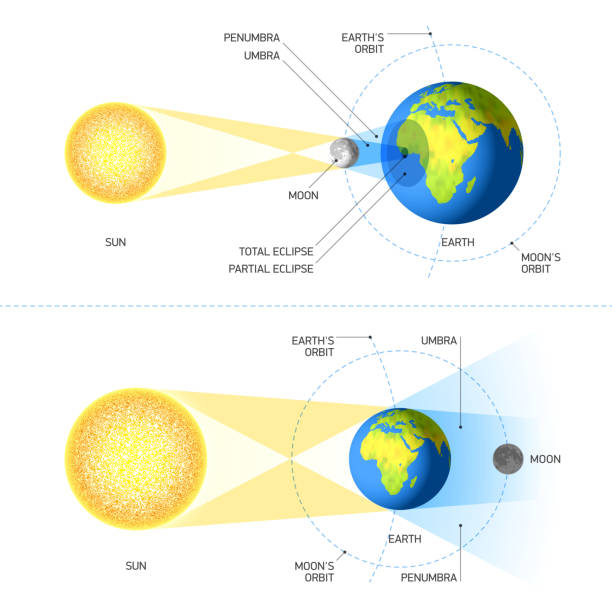
80+ Lunar Eclipse Diagram Illustrations, RoyaltyFree Vector Graphics & Clip Art iStock
Total solar eclipses are quite rare. On average, one will occur at a given location every 375 years . In the lower 48 states, the last visible total eclipse occurred in 2017, and, before that, in.

Lunar Eclipse From Earth
How long we will see total solar eclipses — before the moon ditches us. By Kasha Patel. January 5, 2024 at 6:00 a.m. EST. Earth and moon on the sun phases of solar eclipse. Elements of this.

eclipses (lesson 0148) TQA explorer
Apr 08, 2014 Brian Dunbar When Earth passes directly between the sun and the moon, a lunar eclipse takes place.
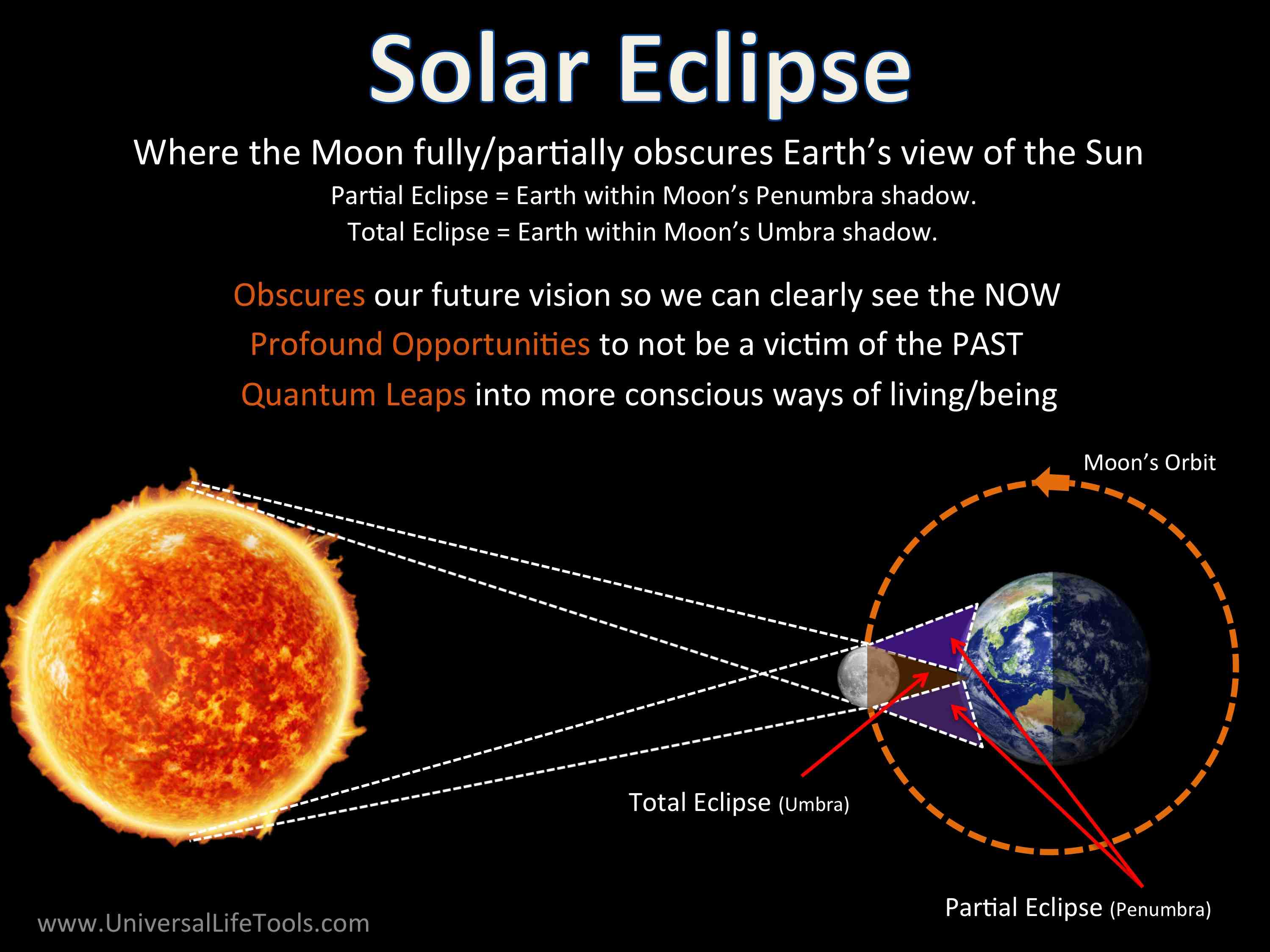
Lunar & Solar Eclipses Simone M. Matthews Universal Life Tools
The umbra is the dark center portion of a shadow. The Moon's umbra causes total solar eclipses, and the Earth's umbra is involved in total and partial lunar eclipses. The umbra is the darkest type of shadow. Like any other opaque objects illuminated by a light source, the Moon and the Earth cast shadows into space as they block the sunlight.
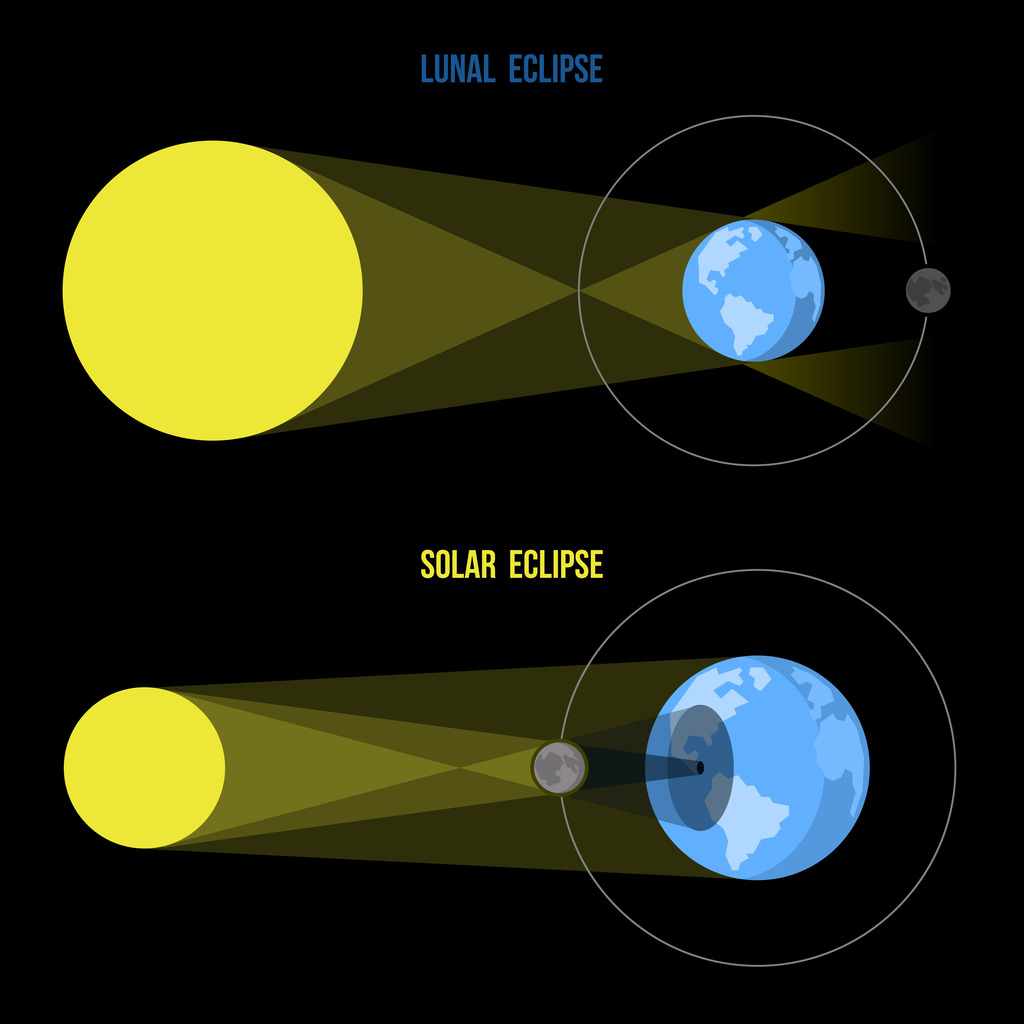
Lunar Eclipse Diagram exatin.info
Lunar Eclipses: 2021 - 2030 Fred Espenak. A concise summary of all lunar eclipses from 2021 through 2030 is presented in the table below. The first column gives the Calendar Date of the instant of greatest eclipse[].The second column TD of Greatest Eclipse is the Terrestrial Dynamical Time of greatest eclipse. The third column lists the Eclipse Type which is either Total, Partial, or Penumbral.
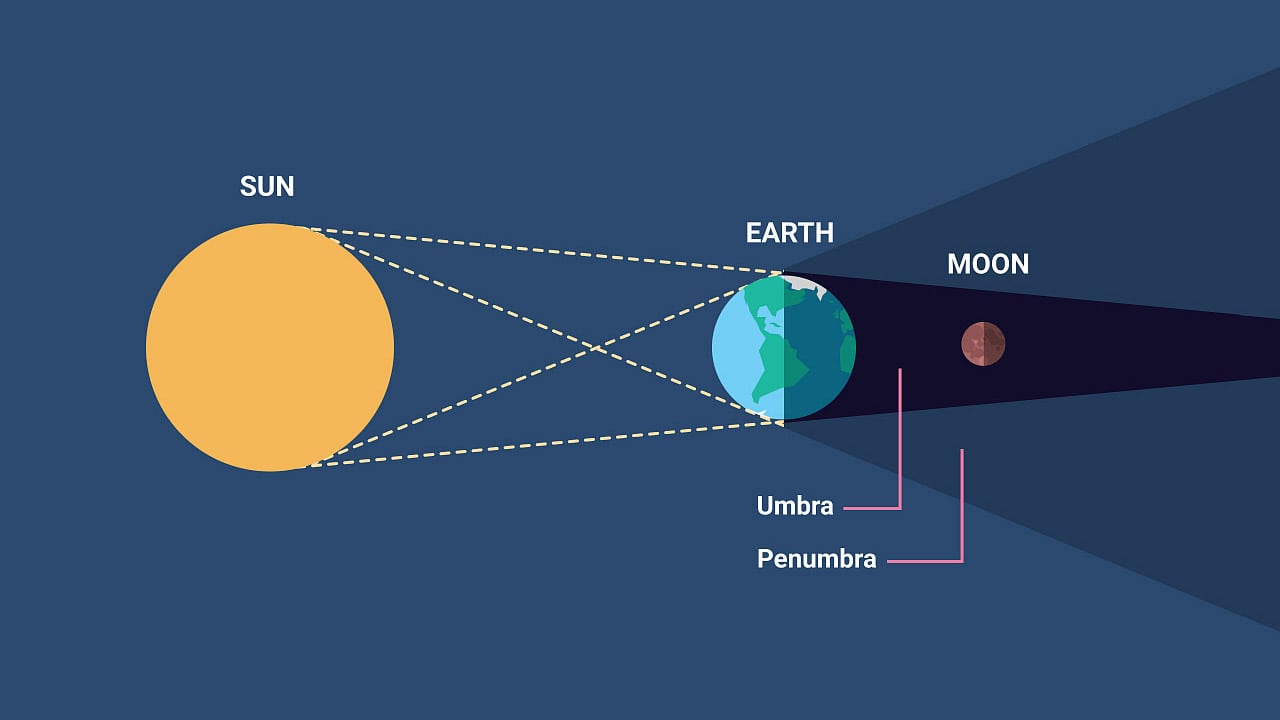
Total Eclipse Of The Moon And Not The Heart This Saturday To The Perth Observatory
english. A solar eclipse will cross North America on April 8, 2024. Many people will be able to see a partial eclipse, and some lucky viewers will be able to see a total solar eclipse. Check out NASA's eclipse path map to find out what to expect in your location. Always use proper eye protection to observe an annular or partial solar eclipse.

What Causes Lunar and Solar Eclipses? Britannica
Click on any diagram below to go directly to a page with detailed information, tables, diagrams and maps for the selected eclipse. --> Central Solar Eclipses: 2021 to 2030 The path of every central solar eclipse (total, annular, and hybrid) from 2021 to 2030 is plotted on the world map (equidistant cylindrical projection).
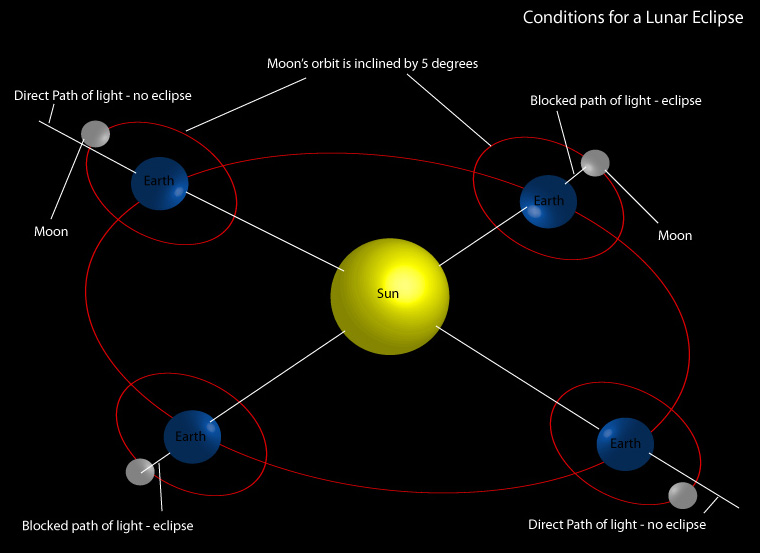
Astronomy Online Lunar Eclipse
The Upcoming Eclipses Page gives a quick preview of all upcoming solar and lunar eclipses. The figures below are links to detailed information (tables, diagrams and map) for each eclipse.. The five volumes of the Eclipse Almanac publication series include maps and diagrams of every solar and lunar eclipse from 2021 to 2070 (each volume.

Figo! 20+ Elenchi di Lunar Eclipse Diagram Png! Diagram of a lunar eclipse photograph by photon
Solar and lunar eclipses worldwide (1900 to 2199) with animations and maps of the eclipse path. Find eclipses in your location.
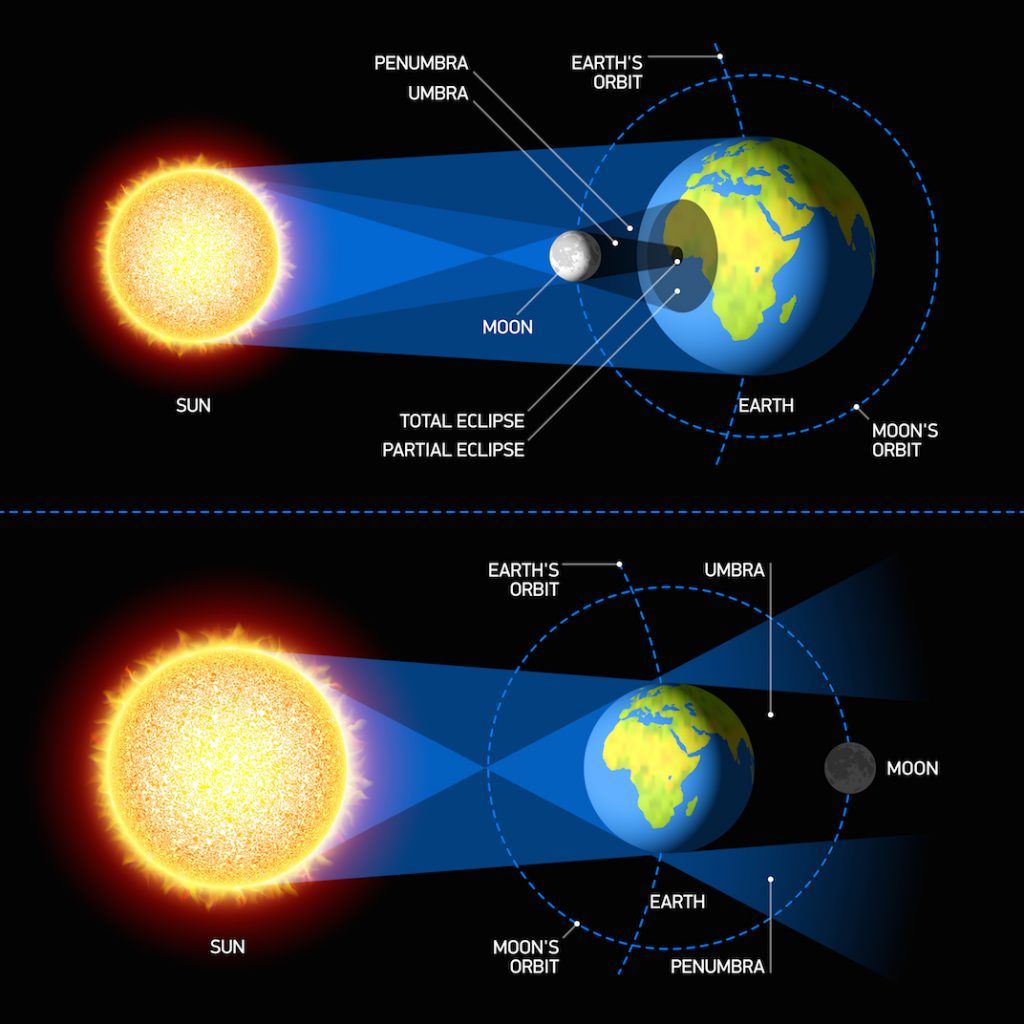
Here's when you can catch the next solar and lunar eclipses in Vancouver News
Solar and lunar eclipses are celestial phenomena that occur when the sun, moon and Earth align in a way that either the moon casts a shadow on Earth or the l.

Free Solar Eclipse Diagram 101 Diagrams
Jan. 2, 2024, 2:59 a.m. ET. India landed a robot on the moon and NASA brought pieces of an asteroid back to Earth to study. A green comet illuminated night skies and a "ring of fire" eclipse.

Solar And Lunar Eclipse Diagram
Solar and lunar eclipses. Multiple eclipses will occur in 2024, including two types of lunar eclipses and two types of solar eclipses, according to the Old Farmer's Almanac. The most highly.
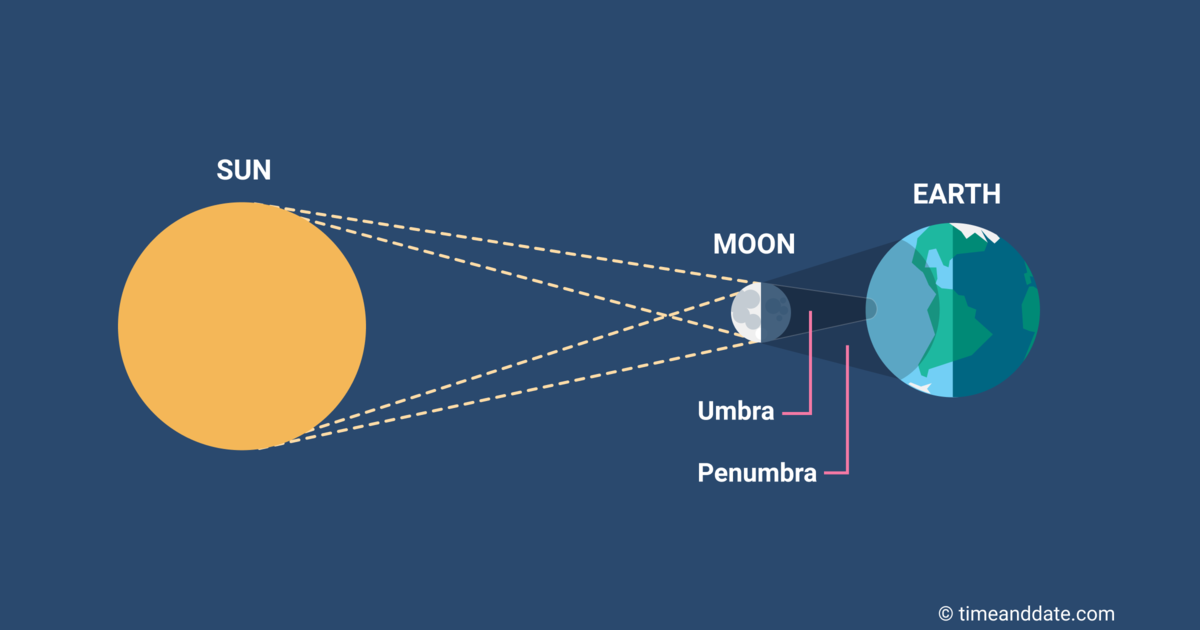
Sun and Moon Forums
The animations on this page illustrate the Moon's orbit and its role in lunar and solar eclipses. A solar eclipse happens when the Moon's shadow falls on the Earth, while a lunar eclipse happens when the Earth's shadow falls on the Moon.Eclipses can only happen at New and Full Moon, when the Earth, Moon, and Sun are all in a straight line. But they don't happen every New and Full Moon.

Lunar Eclipse Diagram NASA
Lunar eclipses occur only at full moon and do not occur every month because the plane of the Moon's orbit is inclined to that of Earth's orbit around the Sun (the ecliptic) by about 5°. Therefore, at most new and full moons, Earth, the Sun, and the Moon are not in a straight line. See also eclipse; solar eclipse. See all videos for this article
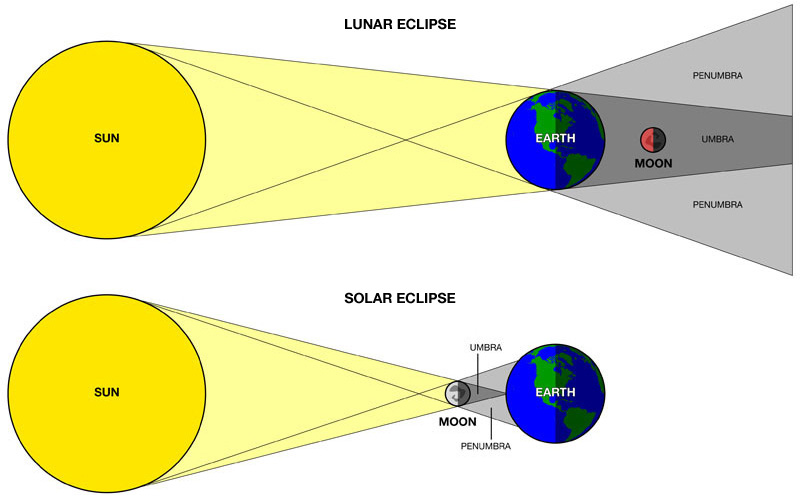
Bilal M Mirza Solar and Lunar Eclipse
During a lunar eclipse, Earth comes between the Sun and the Moon, blocking the sunlight falling on the Moon. A total lunar eclipse occurs when the Moon and Sun are on opposite sides of Earth. A partial lunar eclipse happens when only part of Earth's shadow covers the Moon. During some stages of a lunar eclipse, the Moon can appear reddish.